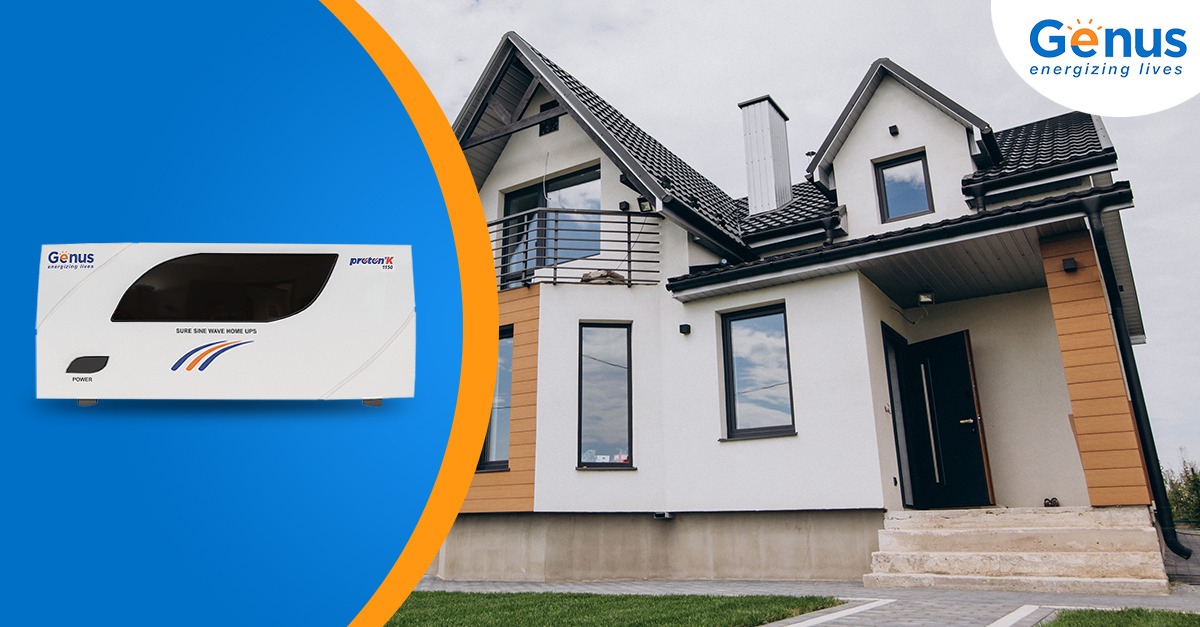
As people become more environmentally conscious, more and more households are turning to solar solutions. As a result, Solar Inverters are becoming increasingly popular nowadays as electricity costs continue to increase. Solar inverter life expectancy should be one of our primary considerations while looking for solar inverters.
According to pv-magazine, the lifespan of a solar inverter lies between 20-25 years. However, it may vary depending on product quality, installation, usage environment and maintenance afterward.
There are several factors that could result in a shortening of your solar inverter’s lifespan unintentionally. For instance, timely maintenance can have a direct impact on your battery’s overall lifespan and effectiveness of your solar system for home. Read along till the end as we discuss the factors that affect the lifespan of solar inverters in detail.
-
Internal Temperature Of Solar Inverter
The temperature within the inverter is one of the most important factors that directly affect the performance and life of solar inverter devices. Higher internal temperatures will reduce the performance and life of your solar inverter.
Many internal components of solar inverters are vulnerable to temperature changes, for instance, a capacitor. It is yet another crucial element of solar inverters. For every 10 degrees increase in ambient temperature, the capacitor life is decreased by 50%. Keeping your solar inverters in areas without proper ventilation or in direct sunlight may lead to overheating.
To maximize solar inverter life expectancy, install your solar inverters in a ventilated space and away from direct sunlight and high-temperature areas such as boilers, electric stoves, air outlets of air conditioners, etc.
-
Input Voltage And Current of Solar Inverter
Improper matching of the input voltage and current parameters of the inverter will also affect its longevity. The higher the voltage or current, the shorter the life of the components. When the component power is fixed, the series component voltage shouldn’t be too high or too low.
Keep the series element voltage close to the inverter’s rated voltage. For instance, if the input voltage range is 200-1000V – it denotes that if the input voltage is in this range, the inverter can function normally.
By keeping the solar inverter input voltage within recommended ranges, you can prevent system breakdowns and also improve the life expectancy and performance of your inverter battery for home. However, even though the input voltage is in the given range, life expectancy of solar inverters will be different for different input voltages.
-
External Environment Of The Solar Inverter
Maintaining a good external environment is also equally important. Installing inverters in a clean environment expands the life expectancy of solar inverters.
If the external environment has serious pollution and dust issues, then it is recommended to install solar inverters in a closed space. This is because when dust, tree leaves or sand falls down on the radiator or into the air pipe of the inverter, the heat radiation function gets affected.
A solar power inverter can be installed indoors or outdoors. Indoor solar inverters are generally cheaper than outdoor inverters. This is due to the fact that outdoor inverters are capable of surviving adverse weather conditions such as rain and extreme heat.
However, they should be installed in a covered space, away from direct sunlight as it can cause solar power inverters to fail or reduce their life. To run a solar inverter efficiently, you will naturally need a solar battery. Consider a genus inverter battery for its high performance, low maintenance, corrosion resistance, and quick rechargeability.
-
Maintenance And Cleaning
Solar inverters are frequently kept in outdoor places and hence it is critical to keep a check on them regularly to keep them clean and free of dust and debris. Regular cleaning and inspection should be done to prevent electrical components, heat sinks, and vents from being clogged or damaged.
It’s also equally important to maintain proper ventilation to prevent overheating. Additionally, monitor your inverter thoroughly every few months. Ensure that there are no modifications or circumstances in the vicinity of the device. If any apparent damages are found, ask your solar provider to take corrective measures.
-
Fault Codes
Solar inverters also have some chances of getting fault codes. These fault codes help you identify the problems occurring in your inverter. If small issues are not addressed, they can progress to more severe problems and result in premature inverter failure.
Conclusion
When solar inverters are manufactured, they are all meant to last the same amount of time. However, the above-mentioned factors can have a significant impact on the actual solar inverter life. So, in order to maximize the lifespan of solar inverters, we need to take note of all the factors affecting it and take corresponding actions.
Now that you are aware of how you can maximize the life of a solar inverter, it’s time to start looking for a high-quality inverter. And in that regard, you can not go wrong with Genus Innovation’s solar products line. Our products are known for offering maximum durability, efficiency and value for money. Contact us to know more.
